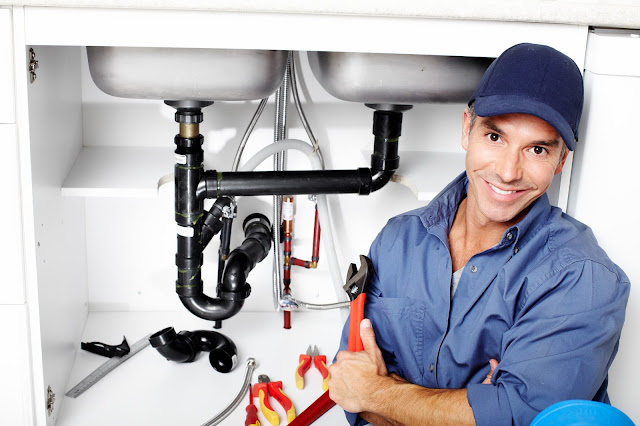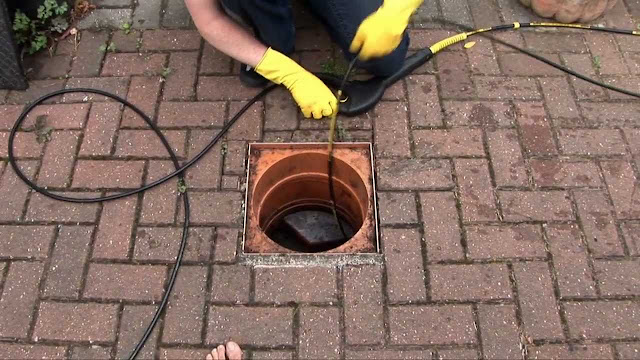The Dos and Don'ts When Waiting for an Emergency Plumber
Emergencies can happen at any time, and knowing what to do while waiting for an emergency plumber can make a significant difference in minimising damage to your property. It's essential to stay calm and take certain actions before the plumber arrives to ensure the situation doesn't escalate.
In this guide, we'll walk you through the dos and don'ts of handling a plumbing emergency while waiting for professional emergency plumber Gold Coast assistance.
Dos When Waiting for an Emergency Plumber
-
Turn Off the Water Supply
The first and most crucial step when facing a plumbing emergency is to turn off the main water supply. This immediate action can prevent further damage in the event of a burst pipe or major leak. Locate the main shut-off valve in your home and ensure everyone in the household knows its location.
-
Clear the Area
Clearing the affected area of any valuable items or furniture is essential to prevent water damage. By creating a clear space, you allow the emergency plumber to work efficiently without risking damage to your belongings.
-
Communicate Clearly with the Plumber
When contacting the emergency plumber Gold Coast, provide detailed information about the issue. Clearly communicate the location and nature of the problem to help the plumber prepare and bring the necessary equipment to address the issue promptly.
-
Follow Safety Measures
Prioritise safety by avoiding contact with electrical appliances or standing water in case of flooding. It's crucial to protect yourself and your family from potential hazards while waiting for the emergency plumber to arrive.
Don'ts When Waiting for an Emergency Plumber
-
Don't Attempt Complex Repairs
Attempting complex repairs without professional knowledge can worsen the situation and may lead to additional costs for repairs. It's best to leave complex plumbing issues to the expertise of a qualified emergency plumber.
-
Don't Ignore Small Leaks or Drips
Even small leaks or drips should not be ignored, as they can escalate into major issues if left unattended. Addressing small leaks promptly can prevent them from developing into more significant problems over time.
-
Don't Panic
It's natural to feel anxious during a plumbing emergency, but panicking can lead to poor decision-making. Stay calm and focused while waiting for assistance, and avoid making impulsive choices that could exacerbate the situation.
Understanding Emergency Plumbing Services
It's essential to understand what qualifies as an emergency plumbing situation and when it's appropriate to call for emergency services. Common examples of emergency plumbing issues include burst pipes, sewage backups, gas leaks, and major water leaks that pose a risk of significant property damage. If you encounter any of these situations, it's crucial to seek emergency plumbing assistance immediately.
Preparing for Future Emergencies
Being prepared for potential future plumbing emergencies can significantly reduce the stress and impact of such situations. Consider creating a list of emergency contacts, including reputable emergency plumbing services, and keep it easily accessible. Additionally, familiarise yourself with the location of the main water shut-off valve in your home to expedite the response to a plumbing emergency.
How to Choose an Emergency Plumber: A Practical Guide
When a plumbing emergency strikes, the water leaking from a burst pipe or a suddenly clogged toilet can cause immediate stress and potential damage to your home.
In such moments, finding a reliable emergency plumber becomes crucial. But in the rush to address the problem, how do you ensure that the plumber you choose is both competent and trustworthy? Here's a simple guide to help you make an informed decision:
-
Look for Licensed and Insured Plumbers
First and foremost, ensure that any plumber you consider is licensed and insured. A license is proof that the plumber has the necessary training and qualifications to perform plumbing work legally and safely. Insurance, on the other hand, protects you from being liable for any accidents or injuries that might occur while the plumber is working in your home.
-
Check Reviews and References
In the age of the internet, it’s easy to find reviews and testimonials about service providers. Websites like Yelp, Google, and Angie's List provide a platform for customers to share their experiences with local plumbers. Reading these reviews can give you a sense of the plumber's reliability, quality of work, and customer service. Additionally, asking for references from the plumber can provide further assurance. A reputable plumber will be happy to provide references from previous clients.
-
24/7 Availability
Emergencies don’t wait for business hours. Therefore, it's essential to choose a plumber who offers 24/7 emergency services. Make sure that the plumber you select can respond to your plumbing emergencies at any time of the day or night. This quick response can be the difference between minor damage and a catastrophic plumbing failure.
-
Ask About Response Time
When you're dealing with an emergency, every minute counts. Ask potential plumbers about their average response times. Knowing how quickly a plumber can arrive at your home can significantly influence your decision, especially in situations where immediate action is necessary to prevent damage.
-
Experience Matters
Experience is a key factor when choosing any professional service, and plumbing is no exception. An experienced plumber is more likely to diagnose problems quickly and correctly, saving you time and money. Furthermore, they are typically better equipped to handle a variety of emergency situations due to the extensive knowledge and skills acquired over years of practice.
-
Consider the Cost
Discuss the cost upfront to avoid any surprises. Most emergency plumbers charge a premium for their immediate service, so it’s important to get a clear understanding of their rates before agreeing to the service. Some plumbers may offer a fixed rate for certain services, while others might charge by the hour. Make sure to also inquire about any additional fees, such as those for weekend or overnight services.
-
Professionalism and Courtesy
The demeanour of a plumber can also be a significant indicator of their professionalism. A plumber who answers your call politely addresses your concerns attentively, and treats your home with respect is likely to provide a satisfactory service. Professionalism in communication and behaviour often correlates with the quality of the technical work performed.
-
Local Proximity
Choosing a local plumber can be advantageous because they can respond more quickly to emergencies. Additionally, local plumbers are more likely to understand the specific plumbing requirements and challenges of your area, such as municipal water regulations and environmental factors.
By taking the time to verify a plumber’s credentials, availability, experience, and rates, you can feel confident in your choice and ensure that your plumbing emergency is resolved swiftly and efficiently.
Remember, a good plumber is not just a necessity; they are an investment in the safety and upkeep of your home.
Conclusion
Handling a plumbing emergency while waiting for professional assistance requires a calm and decisive approach. By following the dos and don'ts outlined in this guide, individuals can better manage plumbing emergencies and minimise potential damage to their property.
Remember to stay calm, prioritise safety, communicate clearly with the emergency plumber Gold Coast, and avoid attempting complex repairs. With these guidelines in mind, you can effectively navigate a plumbing emergency while waiting for the arrival of an emergency plumber.




Comments
Post a Comment